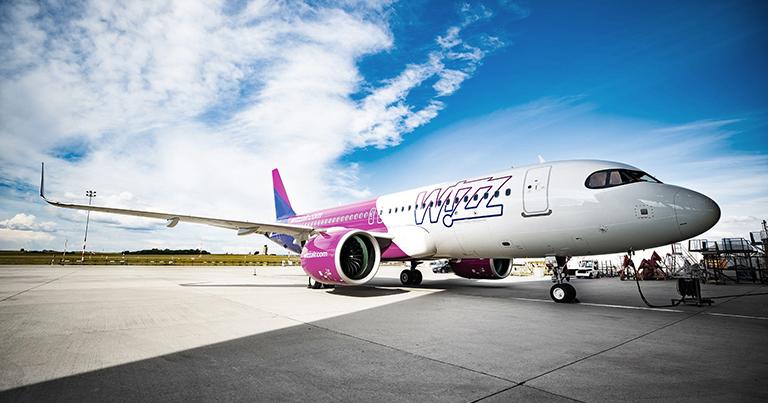
Wizz Air has announced its new aspiration to power 10% of its flights with sustainable aviation fuel (SAF) by 2030. This new target marks a significant step in Wizz Air’s sustainability strategy, and builds on its ongoing investments in SAF development. To achieve the new goal, the airline is also calling for wider industry action to boost SAF production, urging policymakers to address current barriers to SAF deployment at scale.
The announcement has been made alongside Firefly, a UK-based biofuel company that Wizz Air has supported Firefly since 2023. Their partnership will allow the airline to supply up to 525,000 tonnes of SAF over 15 years to its UK operations from 2028.
The new aspiration will drive the airline’s commitment to reducing its carbon emissions per passenger/km by 25% by 2030. Wizz Air will continue to pursue wider sustainability initiatives, including its ambitious fleet renewal plan. The airline uses the latest technology aircraft and prioritises high seat density and load factors to ensure its current operations are as sustainable as possible.
“Wizz Air celebrates two decades of transformation this year, transitioning from a small airline into a global leader of sustainable aviation and affordable travel,” said Yvonne Moynihan, Corporate and ESG Officer, Wizz Air. “Alongside fleet renewal and operational efficiency, sustainable aviation fuel (SAF) plays a crucial role in reducing carbon emissions from aviation. Our investment in Firefly, which has the potential to reduce our lifecycle emissions by 100,000 tonnes CO2-eq per year, underscores our commitment to mainstream the use of SAF in our operations by 2030. However, achieving our aspiration requires a significant ramp-up of SAF production and deployment. Therefore, we call on policymakers to address barriers to SAF deployment at scale by incentivising production, providing price support, and embracing additional sustainable feedstocks for biofuel production.”






